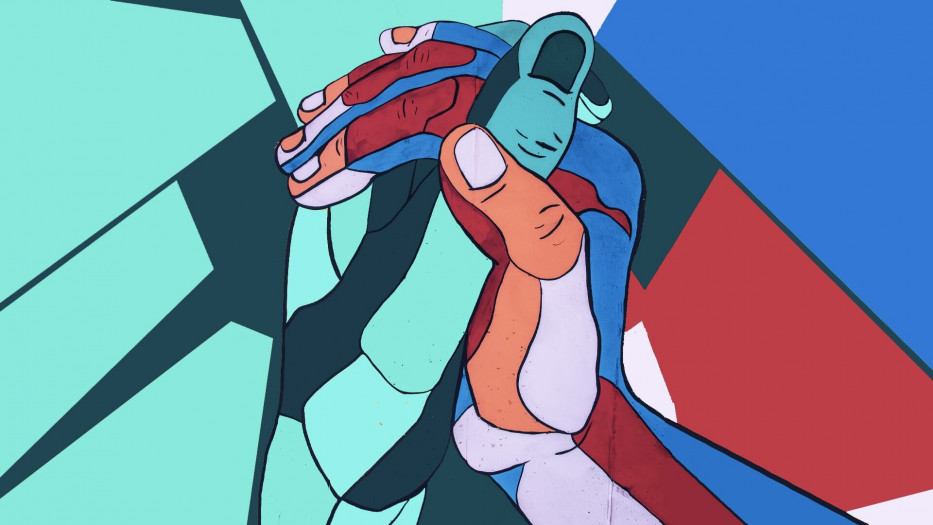

Monday 02 March 2020,
by Andy Stafford
This ‘climate-change’ post has been a long time in the making. I have been troubled by humanity’s critical ‘health’ problem for a while now, and feel compelled to share my thinking. I am under no illusion that a very small number of people will read this post, and much less share my opinion, but that’s okay, for now.
In short, I really believe that if we do not alter the way we (by we I mean humanity) do things dramatically and urgently then we’re looking at a genuinely grim future on earth. Maybe climate change -and its impact- will not be significant in the next five, ten, or even twenty years, but rather than waiting to see, why instead don’t we change now?
Discussions don’t come more consequential than this, and this is just my contribution to help move the needle from apathy towards urgency, and for us to all start asking questions about our future roles, and what we can do both as individuals and businesses. How can we harness technology in the right way so that the natural environment is integral to the way that we progress?
We are told that 2020 marks a critical point for the future of humanity. It is the choices that we all make in this decade that will determine our collective future. The consequences of inaction will not be minor inconveniences to the current lifestyles that most of us enjoy and take for granted, but the potential for human life to disappear altogether in the next century. Civilisations, systems, and even species rise and fall. Cycles of life and death are inevitable. In fact, we have already seen five mass extinctions on our home planet, and a sixth, the ‘Anthropocene’, is already underway, so perhaps we should not be surprised?
However, what if instead of ‘accepting’ extinction, we started making the right choices for future generations? So that life on earth not only survives into the next century but flourishes too. To flourish though, we must fundamentally evolve our role; from exploiters of the planet’s resources to careful stewards, living in much greater harmony with our fellow inhabitants. This will require difficult choices at an individual, societal, national and global level. What role will technology, innovation and entrepreneurship play in this, and how can we combine with a new green focus to nurture and develop innovations that are in balance with nature?
Humanity is heating the planet on a trajectory that will sooner or later have dire consequences for us, and the many species and ecosystems that we share this planet with. This is not news. For some time now scientists have agreed that the climate is changing. The most recent predictions can be found in the UN’s Intergovernmental Panel on Climate Change’s (IPCC) latest report.
This is a consensus from scientists across the globe that have, in the face of relentless criticism, ‘learned’ to dilute their message to be as palatable as possible. The data though paints a stark picture of the future; one with many unintended consequences. Some commentators are attempting to wake us up to the facts with more ‘realistic’ talk of impending collapse, catastrophe, and extinction. Perhaps we should all be talking about ‘climate catastrophe’ now, not ‘climate change’.
According to the research, the majority of us accept that change is happening; its current impacts are all too visible in the increased temperatures seen especially this century, together with, for instance, the frequency and ferocity of storms and wildfires. But, given the direction in which we are heading and the potential consequences, why is this not something we are all obsessed about? If we acknowledge that it is happening, why are so few of us galvanised into action by it? This is a looming global level catastrophe that has been good enough to provide us with advance warnings. We can avert disaster should we choose to do so, but instead collectively we do nothing, or it feels like so little as to have no effect at all.
As David Wallace-Wells points out in his excellent book ‘The Uninhabitable Earth’ perhaps the trouble here is in the narrative of this particular story? In every story, there is a hero, and ultimately victory of good over evil. In this story, we find that we are both the hero and the villain, which creates confusion and an unclear outcome. Instead, we all reassure ourselves, ‘Some bad stuff might happen, but we’ve got ten or so years to turn things around, and the research is not entirely clear on how soon or how painful the impact will be. In fact, it might not even affect me at all, and anyway, that leaves plenty of time for someone else, the real hero who understands the problem, to solve it, right? -an Elon Musk type with an amazing A.I. silver-bullet based solution?!’
This is where human psychology, among other things, impedes us. We’ve evolved to focus on short-term threats for our individual survival, but we are unable to appreciate a long-term collective, existential threat. Such a threat is too opaque, too difficult to grasp, and almost unreal. Climate catastrophe is complex, it goes far beyond national borders; the range of variables, trigger points, and unexpected consequences adds to the uncertainty and serves to justify our indecision, and our resistance to change. In the meantime, each one of us can go on worrying about our busy life full of largely trivial individual concerns, divorced from our collective plight.
Exacerbating this inaction, democratic governments typically run in four to five-year cycles, with incentives that are completely misaligned to planning for long-term change. Democracy, and liberal democracy, in particular, has evolved hand in hand with capitalism and relentless hunger for growth. But growth, within a finite planet with finite resources, at what cost?
If governments fail to lead, technology, its visionaries, and wider talent pool need to fill the vacuum to create and scale the innovations that are needed to save us all. I am a technophile, but here too, I’m also conscious that technology and progress has included the wildly effective extraction and consumption of fossil fuels that have powered growth and development through the last couple of centuries, but also resulted directly in our current predicament. Furthermore, our reliance on, and almost religious faith in technology to save us may turn out to be the ultimate in man-made hubris. Trust in technology alone will not save us.
Technology is nearly always a double-edged sword. Consider now our devices and the power of the web. Together, they hold almost infinite promise for benefits to our collective intelligence and advancement through information sharing, connection, and collaboration. Yet simultaneously they are weakening the real physical relationships between us.
They diminish our attention and reduce our cognitive function, as we take in information in increasingly shorter, more convenient snippets, literally outsourcing our memory to Google. Clicking from link to link, scrolling aimlessly, craving serotonin hits from notifications that provide us with the validation that we seek, not that we need.
I worry that the more time we spend living out our lives on screen, the more divorced from reality we become, and if our energy is focused in the virtual world, human capital cannot be harnessed for positive change in the real world.
People across science, academia and private enterprise are putting increasing effort into solving environmental issues and its consequences, but the most urgent problem that we need to address right now is the volume of carbon dioxide in the atmosphere and its effect on the planet.
Carbon emissions need to be eliminated, ideally immediately, but more realistically reduced dramatically, and urgently. Meanwhile, carbon dioxide that we have added to the atmosphere needs to be captured, or ‘sequestered’. Trees and plants do this naturally -and clearly we need to plant, and not cut-down more of them- but machinery, known as ‘DACs’ are also being developed as a proposed solution to sequester carbon out of the atmosphere to ensure that rising carbon pollution remains within ‘manageable’ levels.
According to some, the planet would require millions upon millions of these machines to keep carbon pollution at manageable levels. This sounds more like a dystopian sci-fi nightmare than a good idea to me, and nothing more than an absolute last resort.
Still, it is much better than the idea of solar geoengineering, which typically refers to dispersing sulphate aerosols (sulphur-rich particles) into the stratosphere to reflect the sun’s rays back out of our atmosphere.
These innovations might yet play a role, but the idea of sulphur rain and millions of machines doing the job of nature is as bleak an outlook as they come. A modern twist on how the end might have played out on a barren and hostile Easter Island.
The role of technology, innovation and the natural world must be more elegant and complementary than this. By one account, if the I.T. industry were a country it would be ranked third behind China and the U.S. in terms of carbon footprint. We must recognise that the massive amounts of energy required to power our digital systems must come from renewable sources. The volume of memory stored, rising at an almost exponential rate, is also literally unsustainable.
We emerged from nature, yet the narrative that we have told ourselves is that we are quite separate. Superior to the other animals and organisms, above the delicate ecosystems that have developed over millions of years, and fully capable of insulating ourselves from the worst that the natural world can throw at us. Undeniably, we have a bigger frontal cortex and arguably a higher level of consciousness, but with increasing evidence to show that now even trees and plants have some rudimentary level of consciousness, really it is our arrogance and sheer lack of ‘humanity’ that sets us apart.
And our fate is very much intertwined. Deep down, even those who can’t openly admit it, must suspect at a fundamental level that the natural world is more critical to us than we can consciously conceive and that change must be inevitable. Yes, technology is a vital and inevitable part of the solution, but it is only part of the solution.
We have to get back in touch with the natural world. We need nature, and nature needs us right now. There are numerous and continually emerging studies that talk of the profound benefit of a simple thirty-minute walk through a park or woods. Not only is there the obvious benefit to our physical health and the related reduction in potential cardiovascular, diabetes and oncological illnesses - to name a few of the obvious complications of our technologically enhanced sedentary convenience seeking lifestyles - but there are benefits to our mental health too. It’s an emerging science, but it seems like the imagery and colours, the movement of the leaves, the noise and the chemicals released, combine with the overall peace and quiet to lower our stress levels, lift our mood, and allow us to breathe, literally.
Good health, wellness and recovery are about taking a holistic view. It’s not just the medicine that keeps us healthy, but an accompanying shift in mindset together with a lifestyle change that acknowledges our circumstances have changed and that we cannot continue to do things the way we always have. It is the same here. Remedial action must go further than simply off-setting, for instance, if the consequences are not to be debilitating or even catastrophic.
It’s time to start innovating. Our lives literally depend upon it. So, how can and will human ingenuity be harnessed to help save us? How can technology innovation, in the form of web, IoT, AI, drones, robotics, blockchain, be developed with not just a passing concern for the natural world and its environmental benefits, but as integral to its future? Where the efficiencies created have a direct and positive impact on the natural world, which in turn has a positive effect on us?
Can we, for instance, design and create innovations that specifically tie our wellbeing to that of nature to protect, and nurture it? Could we connect the wellbeing of the natural world to our actions to give us an eco-health check?
How will innovations, technology platforms, and communication help us all to grow food, source it more locally, eat seasonally, build and produce goods and services with much greater concern for the finite resources involved, eliminate waste, cut down on transportation while also making it entirely fueled by renewable energy, and share everything as part of a renewed sense of kinship and community?
Our efforts must not stop at a focus on nullifying the bad, such as via natural green carbon-sequestering, but move toward a more circular or sustainable environment where, just like in the natural world, everything is recycled, and nothing wasted. Further, still we must figure out how we can be regenerative, rolling back on the side-effects of humanity’s progress in order to retain the truly astonishing progress that we have made, wherever we are able.
How can the empty space on roofs be used for farming, energy creation or green spaces, whilst also reimagining our urban areas to make them more ‘human’, whilst also more local, sustainable and greener? Why shouldn’t every building look like Bosco Verticale, the ‘vertical forest’, in Milan that provides the equivalent of 30,000 square metres of woodland in and around the tower? The temperature on its occupants’ balconies is about 6 degrees lower than its surroundings in the summer, improving the quality of human life while also providing a rich environment for birds and pollinators.
The historian Noah Yuval Harari has repeatedly stated that the biggest challenges that are faced by national governments are also the ones that cannot be controlled or affected within its national borders. Equally the websites, applications and the wider digital communications that we all access via our computers and smartphones are provided to us irrespective of our national identity, and can help us to establish a global togetherness and the urgency required to act together.
Communication will play a critical role in connecting and uniting people, sparking innovations both physical and virtual to speed up scientific discovery. Ideas can transcend national borders and spread rapidly. We desperately need new tech leaders here, ones whose incentives are more ‘humane’ than the current web giants, for instance, whose currency is engagement at any cost.
Examples are emerging. Right now, we’re working with a start-up called Sciony that wants to speed up the time it takes an inventor to get from an idea to commercialisation, by providing a three-sided marketplace for inventor, investor, and service provider. Together they help the inventor scale their ambition or, instead, sell it to someone who can.
Especially within the health and environmental sectors, this is an innovation that can make a difference, and enable others to make an even bigger impact. That is why we are here as a business too. We want to make a difference, to have a positive impact on life through digital innovation wherever we can, by remaining curious, and striving to have a better understanding of how to ‘bridge the gap to healthier lives’, whether at an individual, societal or global level.
It has been said that returning astronauts have been deeply moved by the sight of earth from space, so much so that it fundamentally changed their perspective of life on earth and our role in it. Similarly, to quote, Carl Sagan, the astrophysicist; “It has been said that astronomy is a humbling and character-building experience. There is perhaps no better demonstration of the folly of human conceits than this distant image of our tiny world. To me, it underscores our responsibility to deal more kindly with one another, and to preserve and cherish the pale blue dot, the only home we've ever known”.
I want to be part of the legacy of a generation of people that turned the tide on the planet's destruction, not one that sleep-walked, utterly culpable, into the biggest mass extinction ever ‘seen’ on earth. We must figure out how to be part of nature once again, using technology to work with not against it, stewarding not exploiting it, retaining the spectacular progress that we have made, while nurturing a new, more balanced, type of progress. Here is to the new decade, everyone. Let’s hope by the end of it we can hold our collective heads up high when talking to our children, and our grandchildren, to say that we did everything that we needed to, and that we do not bequeath a spoilt uninhabitable grey dot.

